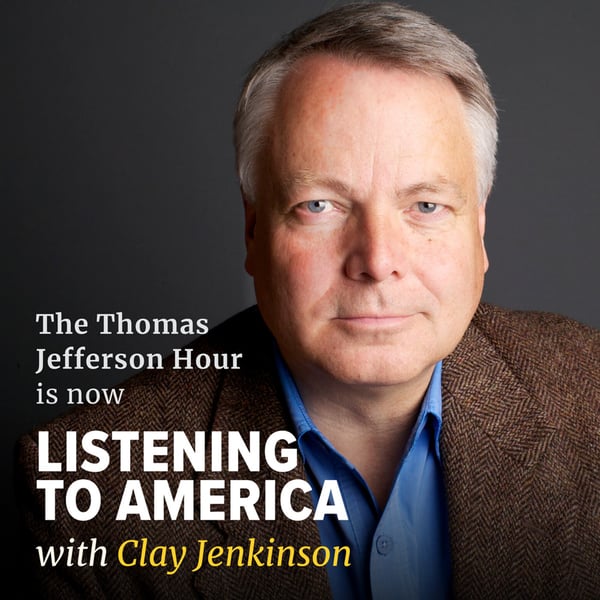#1597 Arbor Day and the Seeds of Liberty
Listening to America
Listening to America
4.6 • 1.1K Ratings
🗓️ 29 April 2024
⏱️ 56 minutes
🧾️ Download transcript
Summary
Guest host David Horton of Radford University discusses America’s trees and forests with Third President Thomas Jefferson. Jefferson said, “No sprig of grass grows uninteresting to me.” He told his friend Margaret Bayard Smith that any unnecessary cutting down of a tree should be regarded as silvicide, the murder of a majestic living thing. Jefferson wanted future cities to be planned in a checkerboard pattern with every other square permanent parkland. One of his last requests, just months before his death, was that the University of Virginia plant an arboretum. Jefferson’s protégé Meriwether Lewis was so startled by the treelessness of the Great Plains that he wondered if they could ever be settled. Later in the program, Clay and David talk about the origins of the Soil Conservation Service and FDR’s idea of a single endless shelter belt down the hundredth meridian from Canada to the Gulf of Mexico.
Transcript
Click on a timestamp to play from that location
| 0:00.0 | Welcome everyone to this podcast edition of Listening to America hosted by David Horton of |
| 0:05.6 | Radford University in Virginia. My old friend and it's Arbor Day and he wanted to talk about trees, which is a enormous subject in the world of Jefferson. |
| 0:17.0 | And something that fascinates me too. |
| 0:20.0 | On the Great Plains, the Soil Conservation Service has made all the difference in the way that we survived the dust bowl and the heavy winds and erosion that comes from the kind of tilling that existed until recently. Now there's something called no-till, which keeps a ground |
| 0:36.7 | cover in a way that prevents the worst of the erosion at least that nearly destroyed |
| 0:42.4 | the Great Plains during the 1930s. |
| 0:45.0 | I've been to the National Forest, the forest that was planted in Nebraska |
| 0:52.0 | and the first Arbor Day, which began in Nebraska in the first Arbor Day which began in Nebraska and I'm |
| 0:56.5 | fascinated by the New Deal's attempts to stabilize the lands of the West through |
| 1:01.8 | the Soil Conservation Service. There's a great film the lands of the west through the soil conservation service. |
| 1:04.0 | There's a great film by Per Lorentz, which you might see. |
| 1:07.0 | I think you can see it on YouTube, but if not on Amazon Prime or some other service. |
| 1:12.0 | It's called The Plow that broke the plains. |
| 1:14.7 | Lorenz was a great independent filmmaker, a friend of John Steinbeck's. |
| 1:19.0 | He worked for the government of the United States as a propagandist for the new deal. |
| 1:24.2 | He made a magnificent award-winning, a fabulous film called The River, which was about the flooding |
| 1:31.2 | and the need for the Tennessee Valley Authority, |
| 1:34.0 | but his other film was called The Plow that broke the Plains, |
| 1:37.0 | and it's really worth your watching. |
| 1:40.0 | So, yes, I'm on the journey starting tomorrow, so amazing that I've got the air stream right outside. |
| 1:47.0 | I took it on a shakedown run last week. |
| 1:50.0 | You can see a comic account of that at L.T America.org. |
... |
Please login to see the full transcript.
Disclaimer: The podcast and artwork embedded on this page are from Listening to America, and are the property of its owner and not affiliated with or endorsed by Tapesearch.
Generated transcripts are the property of Listening to America and are distributed freely under the Fair Use doctrine. Transcripts generated by Tapesearch are not guaranteed to be accurate.
Copyright © Tapesearch 2025.

